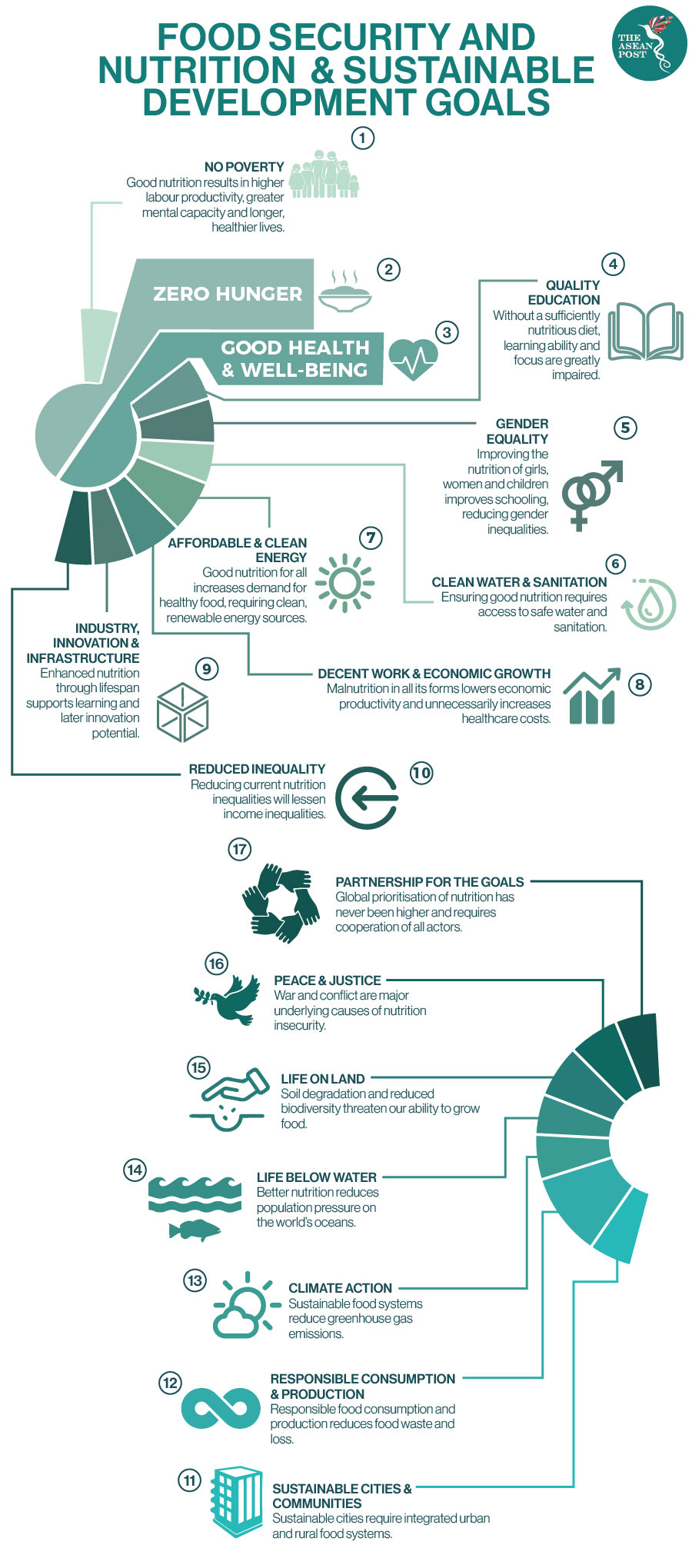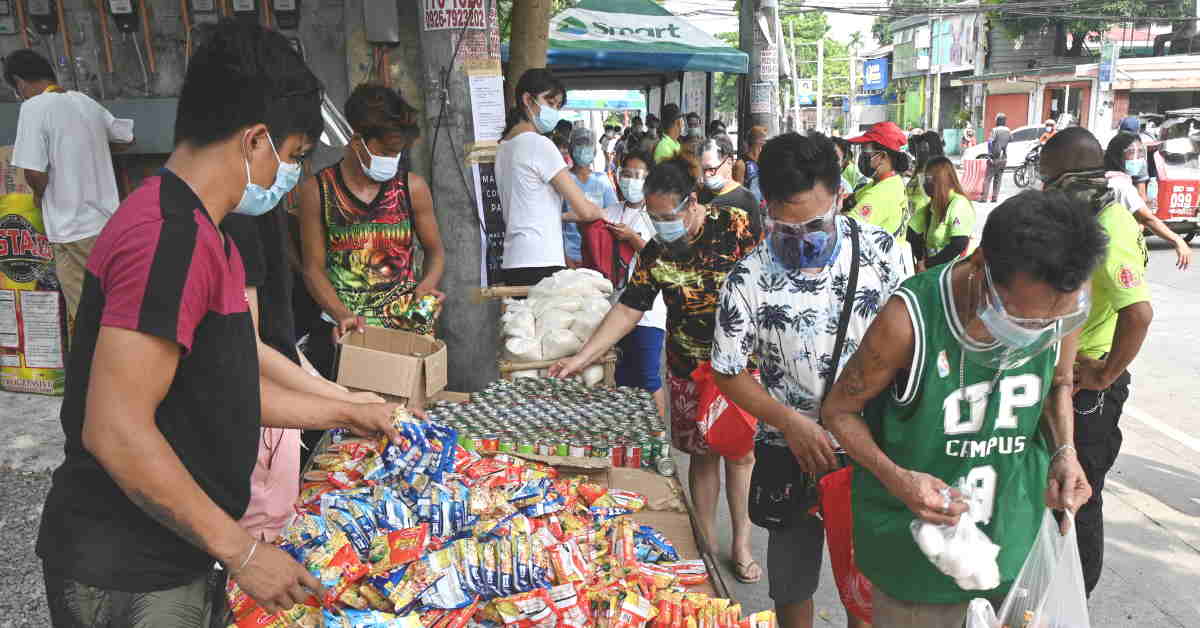One of the most telling and compelling impacts of the coronavirus pandemic is how it has magnified the gap between the “haves and the have-nots;” the disparity in the living conditions of the developed, developing, and underdeveloped countries across the globe; and how it has aggravated further the poverty situation of low-income families and individual across countries except of course in China which even amid the pandemic was able to defeat extreme poverty within its borders lifting around 100 million Chinese out of poverty.
In the Philippines, before the outbreak of the coronavirus pandemic, the economy according to the World Bank (WB) had made progress in delivering inclusive growth, evidenced by a decline in poverty rates and its Gini coefficient.
The “Gini index”, or “Gini coefficient”, is a measure of the distribution of income across a population. It is often used as a gauge of economic inequality, measuring income distribution or less commonly, wealth distribution in a population.
Poverty declined from 23.3 percent in 2015 to 16.6 percent in 2018 while the Gini coefficient declined from 44.9 to 42.7 over the same period. However, this positive trend which had an optimistic impact on household incomes – most particularly those from the lower-income groups –has been held back by negative impacts of the COVID-19 crisis in the country; which also affected the progress of the poverty reduction efforts of the Philippine government.
Based on the latest projections of the National Economic and Development Authority (NEDA), the country's poverty rate is estimated to average between 15.5 percent and 17.5 percent in 2021, likely near the 16.6 percent poverty rate in 2018. This projection is slightly lower from the WB’s poverty rate estimates, declining further from 19.8 percent in 2020 to 18.7 percent in 2021.
In a real-life situation, this just means that the COVID-19 pandemic has aggravated the challenges the country is facing in securing not only food security, nutrition, and good health for all Filipinos but also in securing employment and decent household income for them as well.
Thus, conquering and surmounting the economic repercussions of the pandemic requires stronger collaboration between the public and private sectors, and Filipinos themselves.
Government “Bayanihan” Initiatives
As a response to the adverse impact of the coronavirus pandemic and to mitigate the undesirable impact of the community quarantine implemented by the Philippine government, the largest social protection program in the country’s history was launched.
Under the Bayanihan (1) to Heal as One Act, the government provided emergency subsidies under the Social Amelioration Program (SAP) to low-income families and returning overseas Filipinos. Around 17.6 million and 14 million low-income families received the first and second tranches of the SAP, comprising thus far more or less 70 percent of the population covered by the program.
SAP beneficiaries included members of the Pantawid Pamilyang Pilipino Program (4Ps or Pantawid), accounting for around 4.4 million households. The 4Ps is a human development measure of the national government that provides conditional cash grants to the poorest of the poor, and to improve the health, nutrition, and education of children aged from 0 to 18. Also, the Small Business Wage Subsidy program benefitted around 2.1 million workers of small/medium businesses who were badly affected by the quarantine restrictions.
Likewise, Bayanihan 2 also provides financial assistance to sectors that were adversely affected by the pandemic including transportation, tourism, education, and micro, small, and medium enterprises (MSMEs). Assistance has also been extended as well to the agricultural sector in the form of credit, farm inputs, and training; as well as skills training, particularly on digital skills for displaced workers.
Furthermore, the Philippine government also extended in-kind or cash assistance amounting to PHP 1,000 (US$20.60) per person or PHP 4,000 (US$82.40) per family through local government units (LGUs) to those affected by the recent imposition of the Enhance Community Quarantine (ECQ).
Community Pantry
Moreover, in these critical times, it is but a joy and heartening to see that the spirit of “Bayanihan” is very much felt and alive among Filipinos. “Bayanihan” is the essence of Filipino customs and culture derived from the Tagalog word “bayan” for nation, town, or community. It means “being in a bayan” and refers to the fundamental aspect of Filipino culture of working together as a community to achieve a common goal. In this case, helping out one's neighbour.
One of the many exhibitions of the “Bayanihan” spirit these days complementing the socio-economic assistance programs of the various agencies of the Philippine government is the construct of “community pantries” being carried out by the private sector, non-government organizations (NGOs), religious groups, and even well-meaning and well-intentioned Filipinos who are extending help and taking care of the less privileged and the weakest segment of Filipino society as the country continues to battle the COVID pandemic.
The fundamental purpose of a community pantry is to share something with others. Its organiser is in many ways a good Samaritan offering kindness and assistance to less fortunate Filipinos. Such a display of community spirit is commendable and praiseworthy.

Political Opportunism
However, certain segments of Philippine society have politicised this purely charitable act of kindness to paint the current administration in a bad light. Some personalities belonging to the political opposition and from the left-leaning faction of Philippine society have capitalised and used the proliferation of community pantries across the country to criticise and accuse the current administration as being inept in handling and responding to the socio-economic adverse impacts of the pandemic.
Whereas, the left-leaning faction took advantage and exploited the noble and magnanimous concept of the community pantry to incite and elicit anti-government sentiments among those who are lining up at these community pantries.
This is a classic example of “trapo” politics and political opportunism on the part of the political opposition and the left in an attempt to solicit or increase political support and influence, given that the 2022 national elections are just around the corner.
To note, “trapo” is a Filipino word with a negative connotation of everything undesirable ascribed to a politician. A “trapo” is a typical Filipino politician with an insatiable lust for power, fame, and money. They seem to be decent-looking but actually are a scourge to society.
Conclusion
Politicizing acts of solidarity, kindness, and generosity like community pantries in this time of the pandemic in pursuit of political goals and interests of some political personalities is disgraceful.
Acts of “Bayanihan” like the community pantry should not be viewed through the lens of politics but seen as charitable work devoid of any political influence. After all, what matters at the end of the day is one’s sense of humanity and not politics.
Related Articles:

